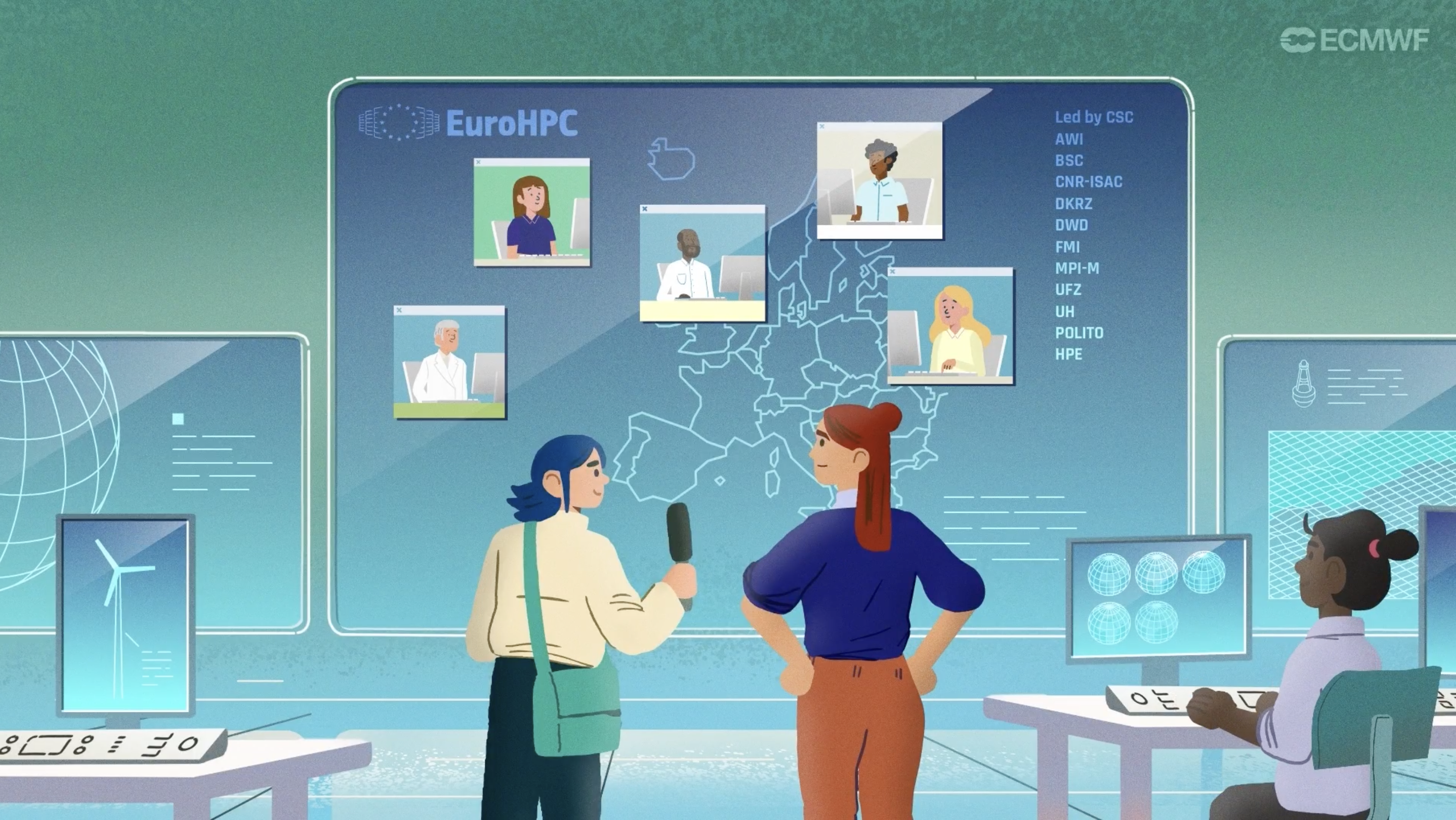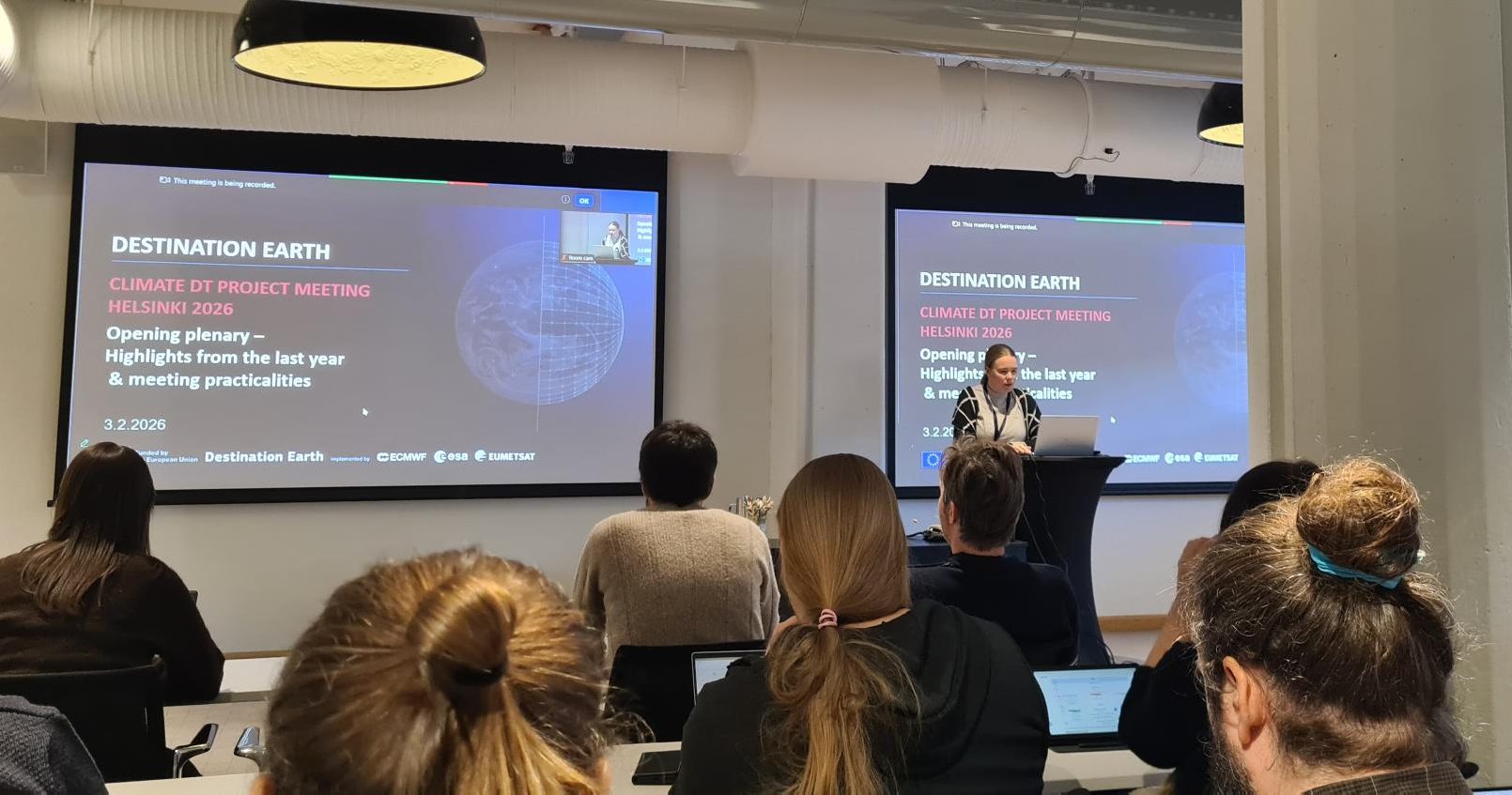
The Spanish data management expert Predictia will build Destination Earth’s (DestinE) Climate Emulator after being awarded the contract funded from the DestinE initative of the European Commission and issued by the European Centre for Medium-Range Weather Forecasts through an invitation to tender released in May 2024. Predictia leads a team of subcontractors including Spain’s Barcelona Supercomputing Center (BSC) and the Spanish Research Council (CSIC) and Germany’s Research Center Jülich (FZJ). The team will create a machine-learning (ML) based emulator that aims to reproduce aspects of the Climate Change Adaptation Digital Twin (Climate DT.)
The creation of an ML-based climate emulator is part of the activities led by ECMWF in the second phase of DestinE, aiming to exploit recent breakthroughs in the use of artificial intelligence and machine learning techniques for weather and climate to enhance the capabilities of DestinE Digital Twins.
The Climate DT is an unprecedented endeavour to deliver an operational framework to produce multi-decadal climate simulations at km scales both regularly and on demand to address targeted what if questions. Earth system simulations at such temporal and spatial scales are only possible thanks to the world-class supercomputing capabilities of the EuroHPC; but their computational cost limits the number of simulations that can be run.
The Climate Emulator will be trained in the high-quality data output produced by the Climate DT, enabling it to reproduce some key physical properties and outputs of the physics-based simulations of the digital twin, but at dramatically reduced computational costs.
Predictia and its partners plan to develop the emulator building on ECMWF’s AI-based weather forecasting model, AIFS. This approach will enhance the AIFS capabilities to meet the Climate Emulator requirements.
The team has a track record in machine learning for climate, including global model emulators, regional climate emulators and foundational models. In addition, BSC and FZJ operate some of the most powerful supercomputers in Europe and are already involved in Destination Earth, ensuring a seamless integration of the emulator in the DestinE components.
The emulator is developed in the frame of the strategic objectives outlined by the European Commission’s DG CNECT for Phase II of DestinE, aiming to increase the use of the recent breakthroughs in AI/ML. Under this framework, ECMWF has also issued a contract to develop Ethical Machine Learning Strategies, a Climate and Weather Chatbot and Pilot Services and Machine-Learning Demonstrators. Ultimately the objective is to develop workflows towards an ML foundation model for the Earth system, providing rigorous and cost-efficient climate and weather data supporting global and European climate adaptation policies and strategies.
These ML-based solutions are complementary to the physics-based Climate DT simulations and contribute to the efforts towards providing uncertainty quantification for certain aspects the simulations and enhancing the interactivity of the system.
The team will work in close cooperation with the consortium in charge of developing the Climate DT, led by CSC-IT Center for Science and ECMWF.
Destination Earth is a European Union-funded initiative launched in 2022, with the aim to build a digital replica of the Earth system by 2030. The initiative is being jointly implemented under the leadership of DG CNECT by three entrusted entities: the European Centre for Medium-Range Weather Forecasts (ECMWF), responsible for the creation of the first two ‘digital twins’ and the ‘Digital Twin Engine’, the European Space Agency (ESA) responsible for building the ‘Core Service Platform’, and the European Organisation for the Exploitation of Meteorological Satellites (EUMETSAT), responsible for the creation of the ‘Data Lake’.
We acknowledge the EuroHPC Joint Undertaking for awarding this project strategic access to the EuroHPC supercomputers LUMI, hosted by CSC (Finland), and the LUMI consortium, Marenostrum5, hosted by BSC (Spain) Leonardo, hosted by Cineca (Italy) and MeluXina, hosted by LuxProvide (Luxembourg) through a EuroHPC Special Access call.
More information about Destination Earth is on the Destination Earth website and the EU Commission website.
For more information about ECMWF’s role visit ecmwf.int/DestinE
For any questions related to the role of ECMWF in Destination Earth, please use the following email links:


